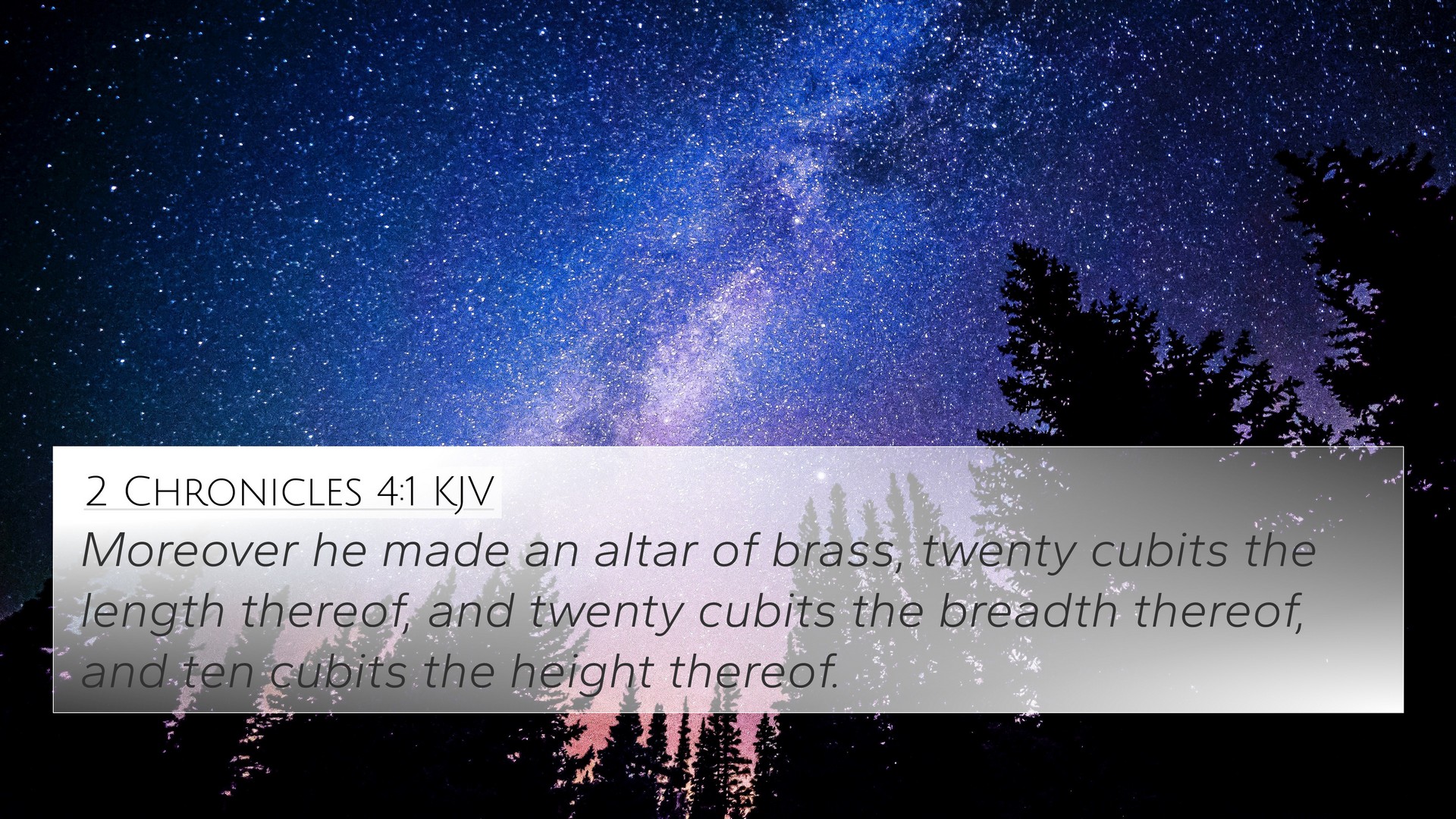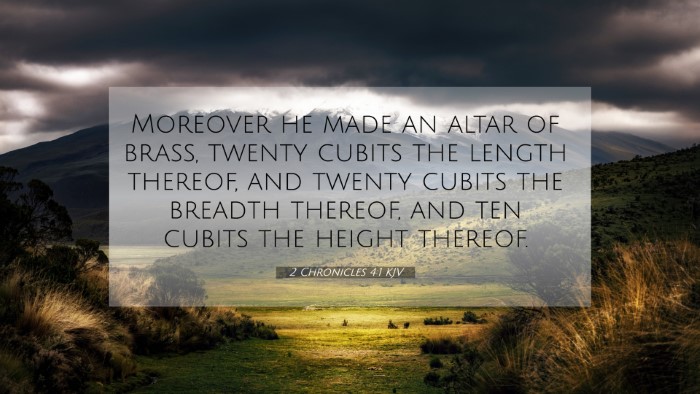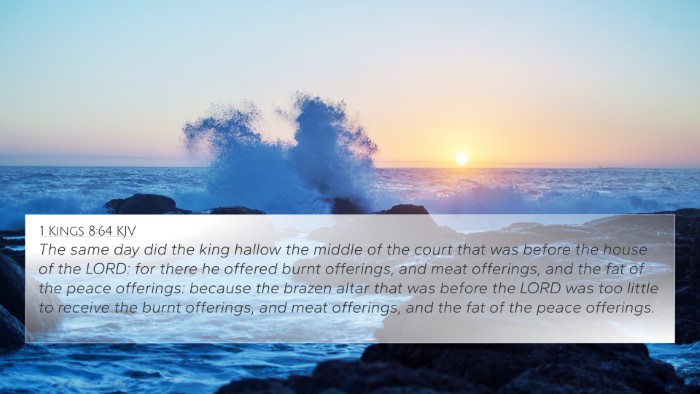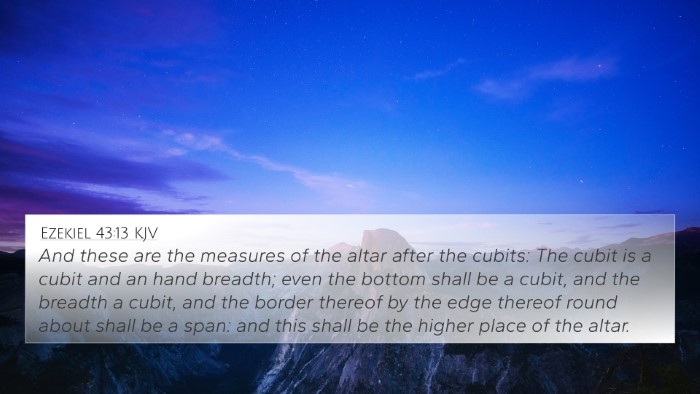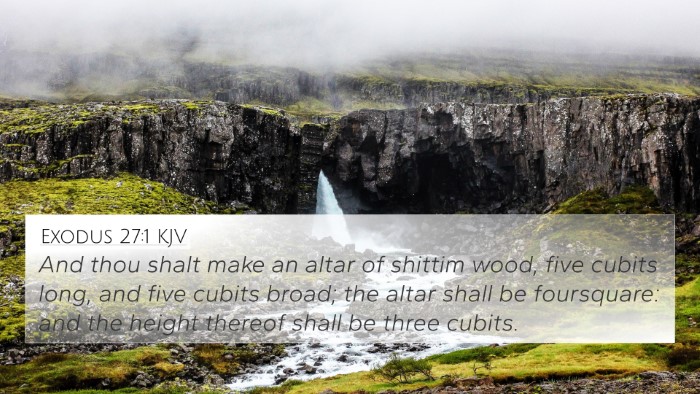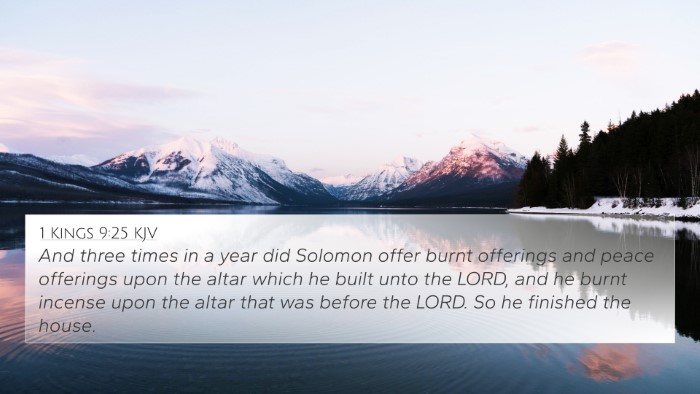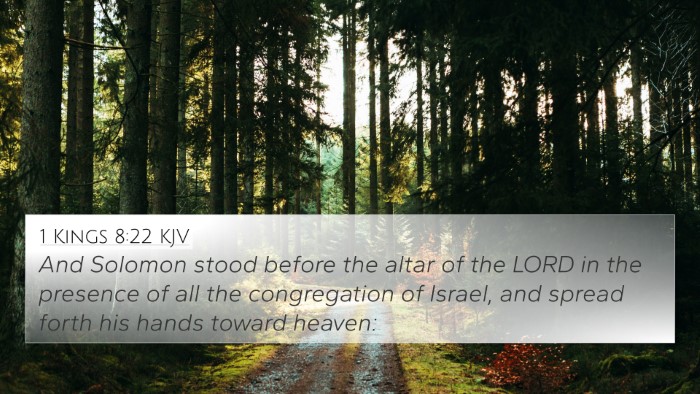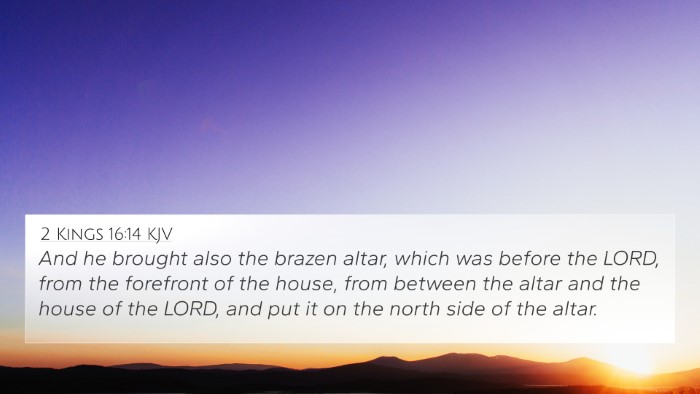Understanding 2 Chronicles 4:1
2 Chronicles 4:1 states: "Moreover he made an altar of brass, twenty cubits the length thereof, and twenty cubits the breadth thereof, and ten cubits the height thereof." This verse details the construction of a significant altar in the temple built by Solomon, indicating both the grandeur and the purpose of worship in ancient Israel.
Summary of the Verse Meaning
This verse emphasizes the importance of the altar as a central piece in the worship of God at the temple. It highlights the scale and the materials used, which reflect the majesty that God is deserving of. Various public domain commentaries provide insights into this scripture:
-
Matthew Henry:
Henry emphasizes the significance of the altar, portraying it as not just a physical structure, but as a means of access to God. He notes its large size symbolizes the breadth of God's mercy and the seriousness of sacrifice.
-
Albert Barnes:
Barnes points out that the altar serves a vital role in the sacrificial system established by God for His people, reinforcing the concept of atonement and worship. The brass construction signifies durability and strength, representing the lasting covenant between God and Israel.
-
Adam Clarke:
Clarke provides a deeper theological insight, connecting the altar with Christ’s ultimate sacrifice and the New Testament interpretation of atonement. He sees the physical altar as a foreshadowing of the greater spiritual realities fulfilled in Jesus.
Thematic Connections in the Scriptures
The altar described in this verse is not just a solitary structure; it resonates throughout the biblical narrative. Here are some connections and cross-references that enhance our understanding of this verse:
- Exodus 20:24: "An altar of earth thou shalt make unto me..." - This instructs the Israelites on the importance of altars in their worship.
- Leviticus 1:5: "And he shall kill the bullock before the Lord: and the priests, Aaron's sons, shall bring the blood..." - Establishing the sacrificial process tied to altars.
- 1 Kings 8:22-23: Solomon’s prayer at the dedication of the temple reflects on the significance of altars in approaching God.
- Hebrews 10:1-4: Discusses Christ as the ultimate sacrifice, building on the sacrificial system initiated with altars.
- Romans 12:1: "I beseech you therefore, brethren, by the mercies of God, that ye present your bodies a living sacrifice..." connects the Old Testament concept of sacrifice with New Testament practice.
- Revelation 8:3: The imagery of heavenly altars evokes the importance of worship and sacrifice in God’s presence.
- Matthew 5:23-24: Jesus emphasizes reconciliation with God before bringing gifts to the altar, linking physical and spiritual responsibilities.
Tools for Bible Cross-Referencing
To fully grasp the interwoven nature of the scriptures and the connections that span both the Old and New Testaments, consider utilizing these effective tools:
- Bible Concordance
- Bible cross-reference guide
- Cross-reference Bible study methods
- Bible reference resources, including study Bibles with built-in cross-references
- Comprehensive Bible cross-reference materials
Conclusion
In conclusion, 2 Chronicles 4:1 not only tells us about the physical construction of an important element of the temple but also serves as a springboard for understanding deeper theological principles. The connections made through various Bible verses and the thematic parallels provide a more integrated biblical view of worship, sacrifice, and the relationship between God and His people. Utilizing tools for comprehensive Bible cross-referencing will enhance one’s study and interpretation of scripture, revealing the rich tapestry of God’s redemptive plan.
